
We Interviewed 5 Changemakers Inspiring Sustainability
We’re in an interval outlined by pressing environmental challenges. Larger than ever sooner than, the situation asks us all to consider how we could also be additional sustainable in our communities. To spark inspiration, we spoke to 5 changemakers (one is a duo, so technically 6!) all tirelessly striving to foster sustainable practices inside their communities. They’re all pushed by a profound dedication to environmental change, and they also’re catalyzing transformative movement on a neighborhood stage. Via innovation, advocacy, and grassroots initiatives — from advocating for BIPOC inclusion in birding to the creation of a decolonial journey info — these changemakers help us envision a higher future and current us learn how to actively perceive it. Be taught on to hearken to their tales and get impressed your self. 🌱
April Campbell, Founding father of BIPOC Birders of MI
A lifelong lover of the surface and wildlife, April Campbell is the founding father of BIPOC Birders of Michigan, on a mission to convey social vary together with nature’s. Reacting to the scarcity of African People involved in exterior nature actions, BIPOC Birders of Michigan introduces people of coloration to the world of birding. Chook by hen (or birder by birder), Campbell creates connection between nature and different individuals of coloration, carving out a protected home for these traditionally excluded from the train. BIPOC Birders of Michigan proudly declare they do see coloration — and they also have time it, as they do all the vibrant birds they spy by binoculars. We had the pleasure of speaking to Campbell about this particular worldview.
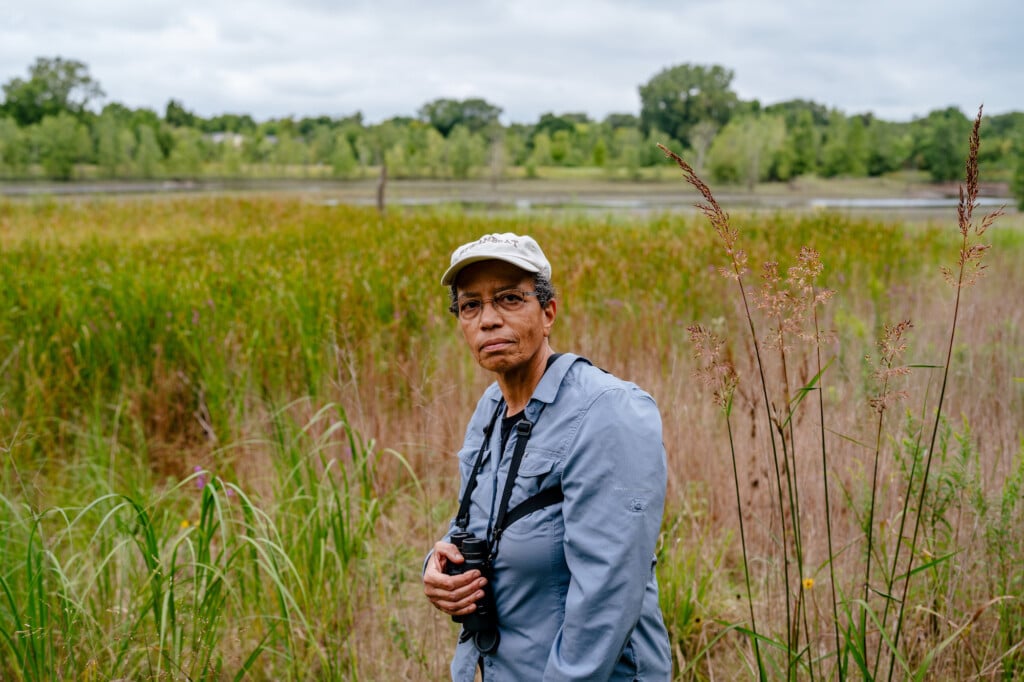
What does sustainability suggest to you?
True sustainability, for me, is a recognition that individuals are a part of and may’t exist apart from the pure world. Like most dwelling creatures, we require water, meals, shelter, and others of our selection to survive. If we accept that we’re subject to the equivalent natural and environmental forces as each different species, it encourages us to devour a lot much less and defend additional to ensure the continuation of a dwelling planet into the foreseeable future. Nevertheless this isn’t going to happen with out sacrifice. It means searching for a lot much less, driving a lot much less, flying a lot much less, and speaking out additional!
Can you make clear the importance of getting vary in bird-watching?
The demographics of the nation have modified markedly over the last 50 years. So have the politics. If we want to defend the birds for future generations, we must always acknowledge all of us are momentary vacationers and ponder what happens to the birds as quickly as we depart the scene. Political actors from communities with little publicity to the wonders of the pure world might have little incentive to protect it. It’s essential the birding neighborhood work together with marginalized communities, meeting them the place they’re and by no means anticipating them to solely show-up at a neighborhood Audubon meeting. Partaking metropolis populations throughout the analysis of birds and totally different animals of their setting helps us to know additional about what metropolis hen populations exist, how they’re faring or altering over time, and so forth. That’s moreover a public properly being concern. Analysis repeatedly current communities with inexperienced areas and alternate options for out of doors recreation are extra wholesome. It’s about caring for each other… and the birds.
What provides you hope for the long run correct now?
I’ve to confess, I do vacillate at cases between hope and despair over the planet’s dire standing. Nevertheless I remind myself, people, significantly youthful people, are organizing throughout the planet to complete the destruction of our pure property and gradual native climate change. They’re protesting, volunteering, boycotting, and working for elective office. Proper right here in america, we efficiently have a plutocratic gerontocracy that shall be troublesome to dislodge, nonetheless it is going down and social media amplifies the voices of change. Youthful of us are savvy they usually’re aware of what’s at stake for us and the earth. That gives me quite a lot of hope.
Ashley Blakeney, Authorities Director of Crenshaw Dairy Mart
Crenshaw Dairy Mart is a neighborhood collective supporting black and transnational identities in crafting a “new collective memory” that services artistry and activism. By incorporating a deep understanding and respect of the Inglewood ancestry (the California metropolis the place the group depends), embracing abolitionist guidelines, and centering therapeutic at their mission core, Crenshaw Dairy Mart continuously promotes solidarity in a neighborhood that has historically suffered by the arms of the racist carceral system. As a result of the collective’s Authorities Director, Ashley Blakeney works to promote native sustainability by CDM’s abolitionist artists’ residency program, quite a few inventive programming, and fairly a couple of discount and mutual assist initiatives identical to the Inglewood neighborhood fridge and the abolitionist pod neighborhood yard. We talked about the importance of creativeness for the way in which ahead for sustainability with Blakeney, study on to hearken to additional.
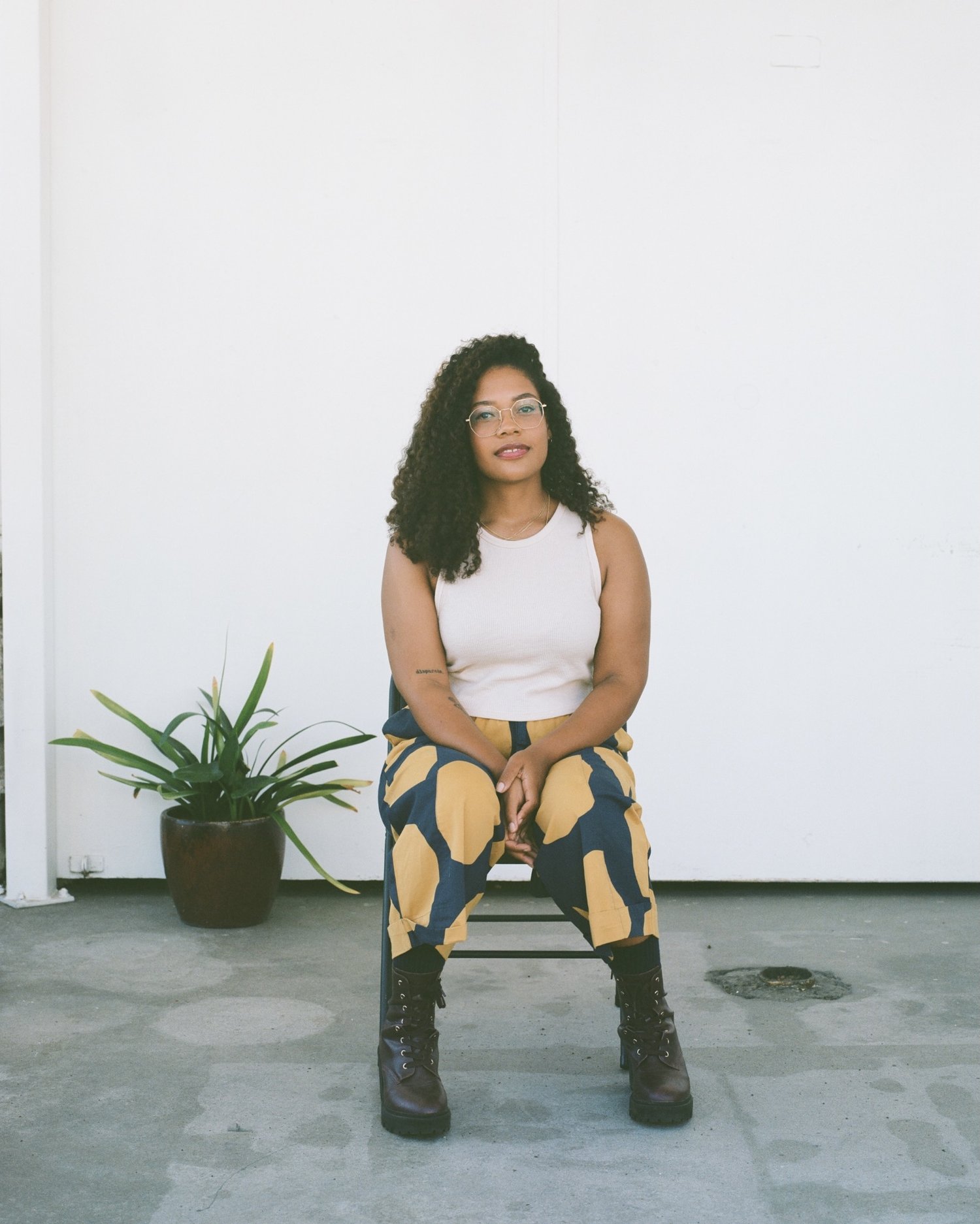
What does sustainability suggest to you?
On the Crenshaw Dairy Mart, sustainability is deeply associated to abolitionist values and praxis. Sustainability services spherical longevity, care, steadiness, reciprocation, and assist. It’s the ability to have our desires met whereas persevering with to fulfill the desires of our neighborhood and our world. Whether or not or not by the reciprocation of our Thich Nhat Hanh compost or the funding, care and love poured throughout the well-being of our employees, we methodology sustainability as holistically as attainable.
What perform do paintings and abolition play in sustainability?
Creativeness! I always say creativeness is the cross-section of paintings and abolition. We should always depend upon our creativity to consider new strategies of care and film new strategies of present collectively. This course of incorporates imagining pathways for sustainability in {{our relationships}}, communities, organizations, and greater collectives.
We keep in a convention and society that doesn’t value creativeness. Our current strategies depend upon instability, lack of care, and no creativeness. As soon as we relinquish our vitality and give up our creativeness, every individually and collectively we destroy the chance of sustainability. We should always work collectively to differ the current framework and that working collectively requires deep creativeness observe.
Creativeness, if typically practiced, can set us free.
What provides you hope for the long run correct now?
The perform of therapeutic and abolition all through the context of neighborhood establishing, significantly inside abolitionist institutions, brings a good deeper layer of hope for the long run. Abolitionist institutions, identical to the Crenshaw Dairy Mart by their very nature, drawback present buildings of oppression and envision a world the place paintings, justice, and care are central. The focus on therapeutic inside these areas acknowledges the traumas inflicted by these buildings and acknowledges that transformation requires addressing and mending these wounds. At CDM we think about Incorporating therapeutic into neighborhood establishing emphasizes the importance of not merely altering strategies externally however moreover nurturing explicit individual and collective well-being. It’s about creating environments the place everyone has the home to heal from the impacts of systemic oppression.
Lastly, by aligning with abolitionist guidelines, our communities actively work within the course of dismantling the strategies that perpetuate harm. So many organizations in Los Angeles and all through the nation convey me hope. From Lauren Halsey’s neighborhood group, Summaeverythang, to Question Custom, an abolitionist worker-owned media collective led by Richie Reseda and Rahael Asfaw, their approaches not solely search to remove oppressive buildings however moreover to reimagine and rebuild a society primarily based totally on mutual assist and take care of all of us.
Hōkūlani Aikau & Vernadette Vicuña Gonzalez, Authors of the “Detours: The Decolonial Data Assortment”
“Detours” is an important and ethical reinvention of the on a regular basis journey info, created by Dr. Hōkūlani Aikau, Director of Indigenous Governance on the School of Victoria and Professor Vernadette Vicuña Gonzalez of the Division of Ethnic Analysis at UC Berkeley. By centering places as culturally rich and historically difficult — fairly than fantastical vacationer places — contributions by artists, activists, and college students encourage company to watch sustainability and reflection of their contact with the web sites and communities they go to. The gathering highlights the colonial legacy of tourism, offering readers a decolonial methodology to journey and galvanizing company to watch a holistic sort of engagement with new places. We spoke to Aikau and Gonzalez about their work, and what retains them going.
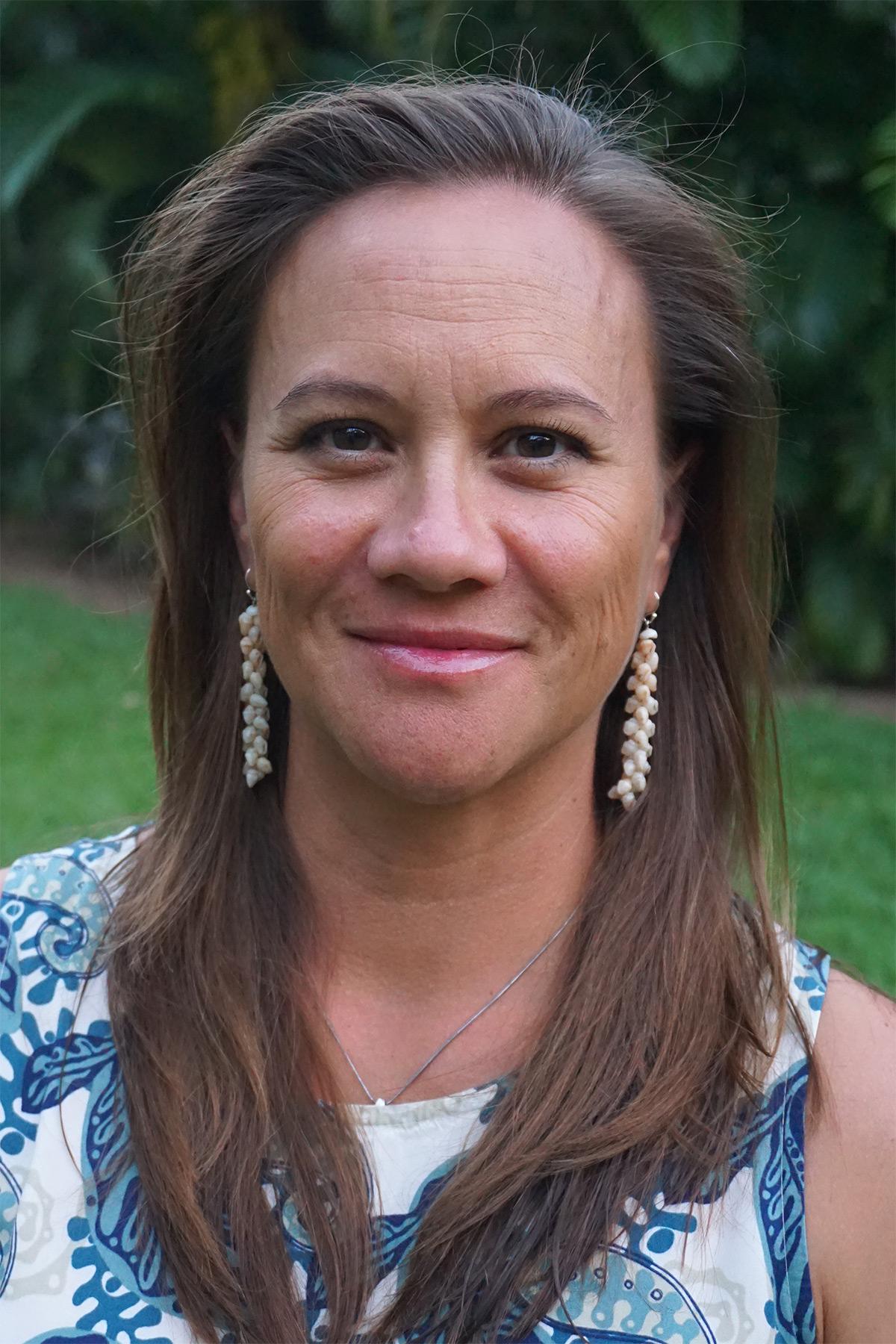
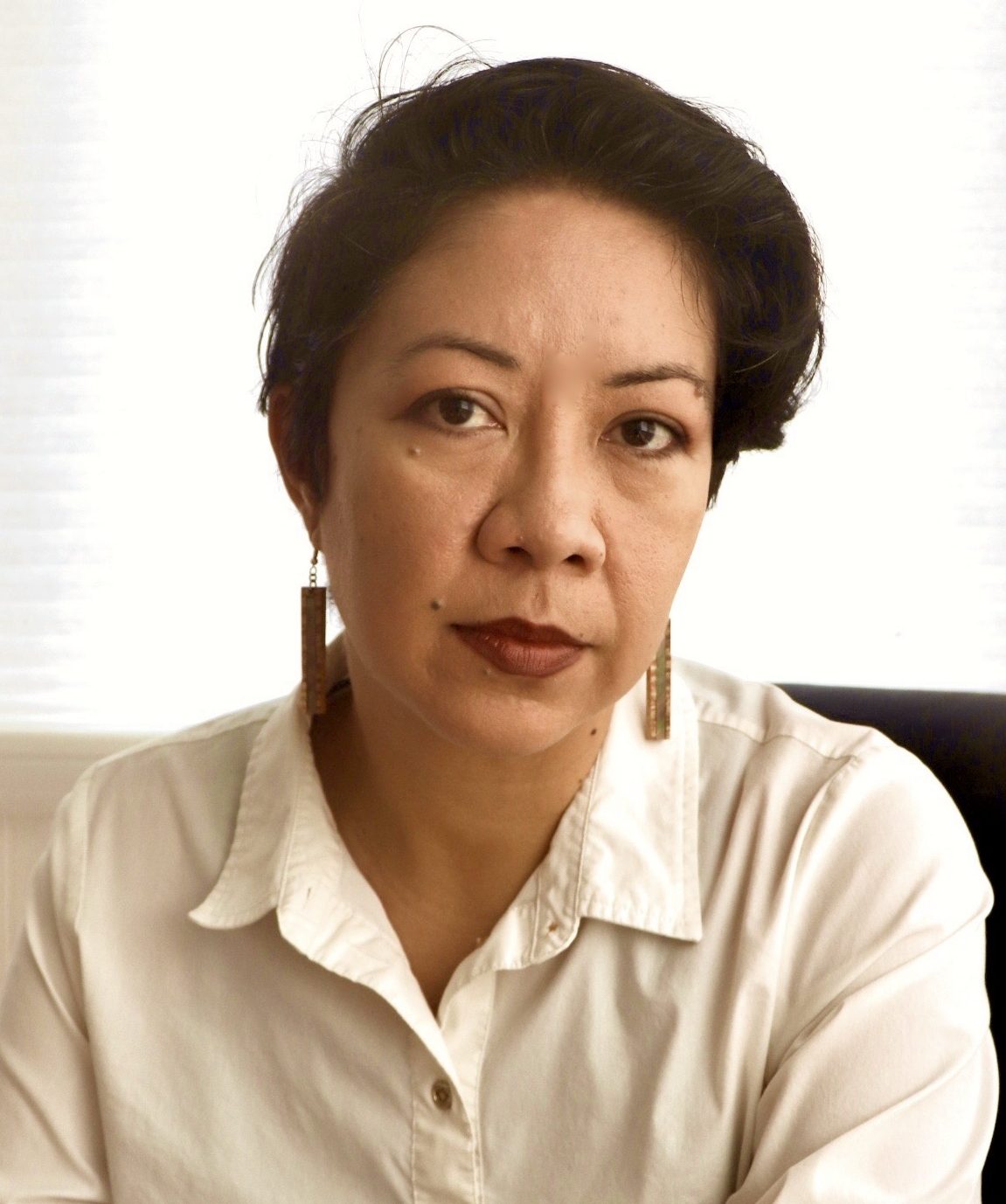
What does sustainability suggest to you?
Our fascinated with sustainability is grounded in Indigenous guidelines and practices, so this positions sustainability exterior of capitalism and its extractive financial system. In numerous phrases, it’s not about how quite a bit income could also be extracted from the finite property obtainable on this planet. Pretty, it is about how we individuals, significantly these of us dwelling in first-world nations who use additional property than individuals in numerous parts of the world, can keep in methods through which actively contribute and add to the renewal and regeneration of the places that nurture us. This requires a major shift in mindset. As soon as extra, our mindset is grounded in Indigenous temporalities the place selections are made primarily based on generational time horizons. Significantly, a relational framework requires individuals to be attentive to the plenty of temporalities of the pure world, and by no means merely individuals. For example, in Hawai‘i, the Koa tree is a culturally very important relative because of they supply themselves as wa’a (canoes). As soon as we ponder the tactic of restoring the koa forests, we now should work all through the temporality or life cycle of koa, which is roughly 100 human years.
What’s offering you with hope for the long run correct now?
We uncover hope throughout the poetry, prose, paintings, tales, and oral histories curated in these edited collections — these are the foundational acts for creating and sustaining communities in cases of enjoyment and celebration, and we flip to them significantly in cases of darkness and despair. As soon as extra, Indigenous teachings are instructive when fascinated with futures and hope. Inside a Kanaka ‘Ōiwi worldview, we, individuals, stand firmly throughout the present second looking for to the earlier as we stroll cautiously into the not sure futures. What this means for us is that in cases of catastrophe, we solely should look to ancestors and ancestral info for courses on learn how to remain properly and within the exact relationship with all of creation.
How can we assist “Detours” efforts everywhere in the world?
“Detours: A Decolonial Data to Hawai‘i” makes use of the narrative development of a tour to tell decolonial tales of place. As editors, we now have a group that allows us to amplify and preserve up decolonial and anticolonial practices taking place everywhere in the world. “Detours: Hawai’i” was the first throughout the assortment. We’ve now decolonial collections in enchancment focused on Palestine, Guåhan, Singapore, Korea, Okinawa, Puerto Rico, and the Indigenous Bay Area. We merely obtained to see the entire manuscript draft for the Palestine amount, which was every inspiring and heartbreaking in mild of the genocide and utter destruction of Gaza.
We intentionally disrupt the guidebook as a mode and kind, to have the ability to drawback the assumptions about entry to places that guidebooks promote. Pretty, our assortment guides readers within the course of practices and guidelines that assist and preserve decolonial and anticolonial visions that folks have for his or her homelands. Merely as our methodology to sustainability requires a critique of capitalism, the “Detours” assortment moreover takes critically the harm of capitalism along with militarism, heteropatriarchy, and white supremacy. Lastly, removing these strategies of oppression, exploitation, and demise is admittedly what sustainability would require.
Leah Thomas, Founding father of the Intersectional Environmentalist
The Intersectional Environmentalist is a non-profit platform and helpful useful resource hub that advocates for environmental justice by education and the promotion of inclusivity and accessibility. As a champion of native climate movement, Leah Thomas (commonly known as Inexperienced Woman Leah) highlights the interdependence of social and environmental justice. Given that enterprise’s inception in 2020, the Intersectional Environmentalist has associated fairly a couple of people to actions of their native individuals, empowered BIPOC environmentalists by highlighting their tales, and guided a variety of organizations to embrace intersectional environmentalism of their expert observe. We came across additional about this methodology to sustainability and learn how to imagine intersectionality alongside our efforts.
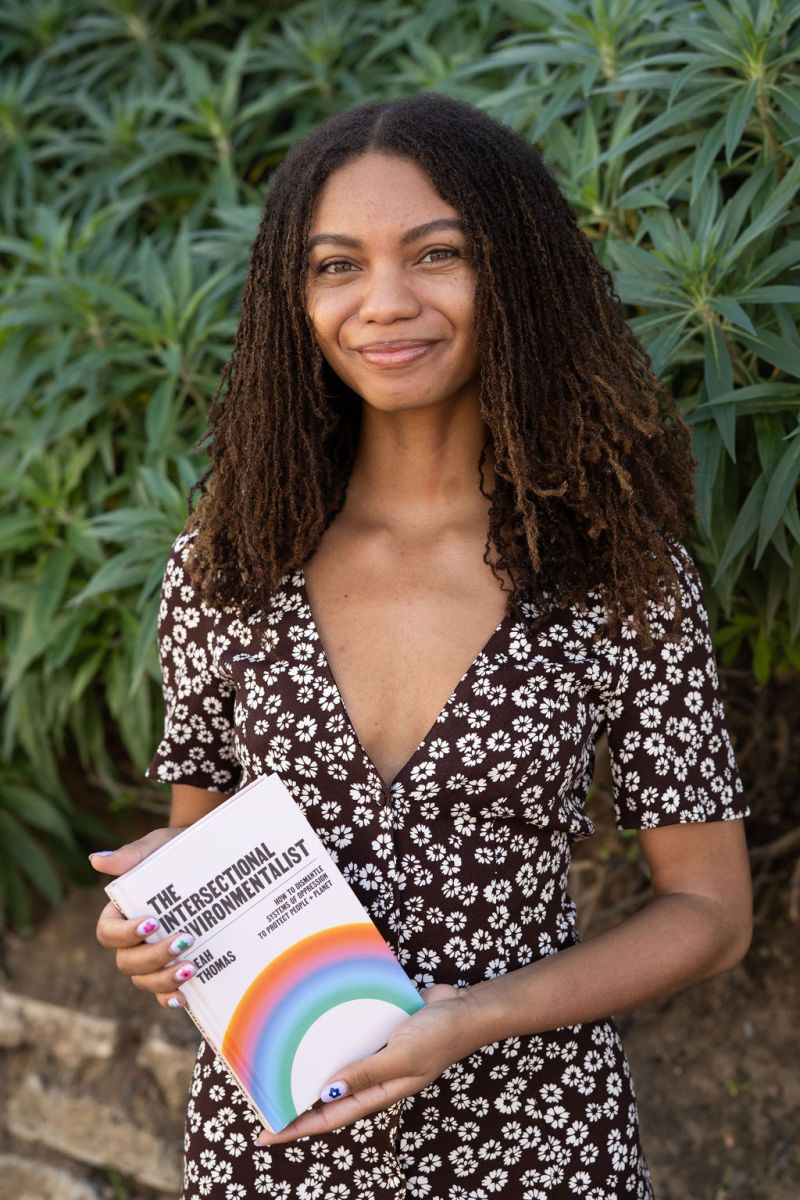
What does sustainability suggest to you?
Sustainability means caring for myself, the planet, and my neighborhood in a signifies that’s restorative and regenerative.
How can we center intersectionality in our fight for native climate movement?
Always asking the question “who” is being impacted by an environmental last consequence or hazard and guaranteeing these most impacted have a seat on the desk to advocate for his or her communities in decision-making.
What provides you hope for the long run correct now?
I’ve quite a lot of hope in grassroots environmental justice organizing and the power of a collective of people in a metropolis to create change.
Nivi Achanta, Founding father of The Soapbox Problem
The Soapbox Problem is a neighborhood, community-based social and environmental justice initiative with a mission to make native climate movement pleasurable. Nivi Achanta, founding father of the enterprise, initiated programming that begins with education and always services human connection and pleasure. In doing so, the Soapbox Problem empowers the members of its neighborhood to create a additional equitable and resilient future. Members of the Soapbox Problem are guided by “bite-sized” weekly educational property delivered to their inbox, and are supplied vital areas to connect every nearly and particularly individual. The Soapbox Problem helps its neighborhood flip native climate movement into an achievable goal — no matter how busy life will get. We had the pleasure of speaking to Achanta about psychological properly being and sustainability, and learn how to switch forward with braveness and pleasure.
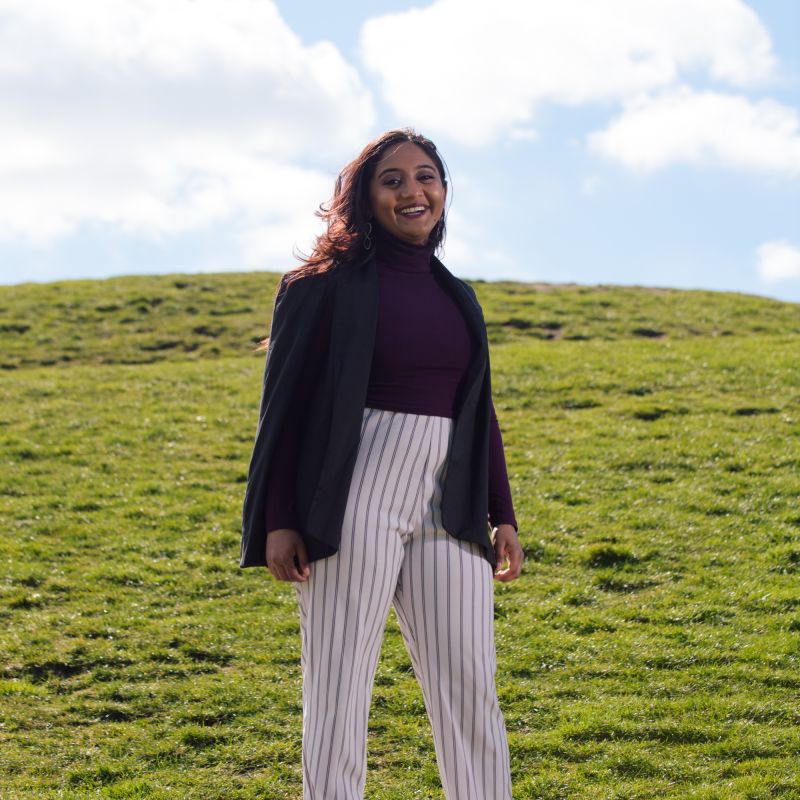
What does sustainability suggest to you?
I’ve realized that my goal in life isn’t to “fight native climate change” nonetheless fairly create a world the place each of us can keep our biggest lives with our biggest buddies on the best planet! After I take into accounts sustainability, I take into accounts environmental justice, cultural preservation, racial equity, and the intersections that enable us to proceed present on this beautiful, lonely planet.
How can we defend our psychological properly being whereas combating for native climate justice?
At Soapbox Problem, we think about that we’re capable of actually really feel larger by doing larger. Our core values are braveness and pleasure, and pleasure is a really essential, underrated phrase throughout the native climate movement. For us, it’s not solely a byproduct of our work; it’s the muse. If we’re not striving within the course of a joyful future, what exactly is it that we’re combating for? It’s essential to create home for “harmful” emotions too, because of none of us are going to get wherever ostriching the difficulty away. I’m an infinite believer in courageous areas for anger, grief, and despair: areas the place we’re capable of course of these things in neighborhood after which switch by them collectively, to the movement on the other facet. One occasion of that’s our Rage Room Movement Hours. We gather in small groups, share the problems we’re really offended about, and simply preserve home for each other until we’re ready to talk regarding the actions we want to take collectively. Moreover, significantly in america, the psychological properly being dialog is so individualistic. Soapbox (and I!) want to drawback that narrative by centering neighborhood care as a psychological properly being decision. Prentis Hemphill shares, “The choice is for neighborhood care and for an ethic, made clearer on this second of instability, for care to be central throughout the strategies we create. What can you present? The place is your abundance? And the place can you quit into receptivity to alter right into a beneficiary of 1 different’s abundance?” These questions info me as I work alone nook of therapeutic our social and environmental material.
What provides you hope for the long run correct now?
Being in neighborhood with courageous people provides me hope. Hyperlocal activism provides me hope. With the power to plant seeds in my very personal neighborhood, every really and figuratively, provides me hope. I’ve been shifting my very personal life from explicit individual dwelling to collective dwelling: Via web internet hosting Soapbox Seattle, by piloting a meal-share program with buddies, by exploring cohousing and totally different fashions for the American Dream. It’s been beautiful to see what number of people are carried out believing throughout the “default” path that’s been charted for us. In all probability probably the most crisp second of hope obtained right here to me plenty of days prior to now, after I had a reputation with Abdul Semakula, a neighborhood builder in Kampala, Uganda. We’ve been launched by one among Soapbox Problem’s Changeletter readers, and it appears we’re doing very comparable points on the theme of neighborhood therapeutic, merely in wildly utterly totally different corners of the world. Seeing each explicit individual merely do their most interesting with what they’ve conjures up me to proceed doing my most interesting too. Plus, the magical issue about not determining what the long run holds is…What if it’s the best-case state of affairs? Who’s conscious of!
Featured image is courtesy of Nivi Achanta
Sara Jin Li is an essayist, playwright, and filmmaker based in Los Angeles, California. She can be the founding father of Heretics Membership, a literary salon for ingenious writers. You may discover her on Instagram at @sarajinli.


